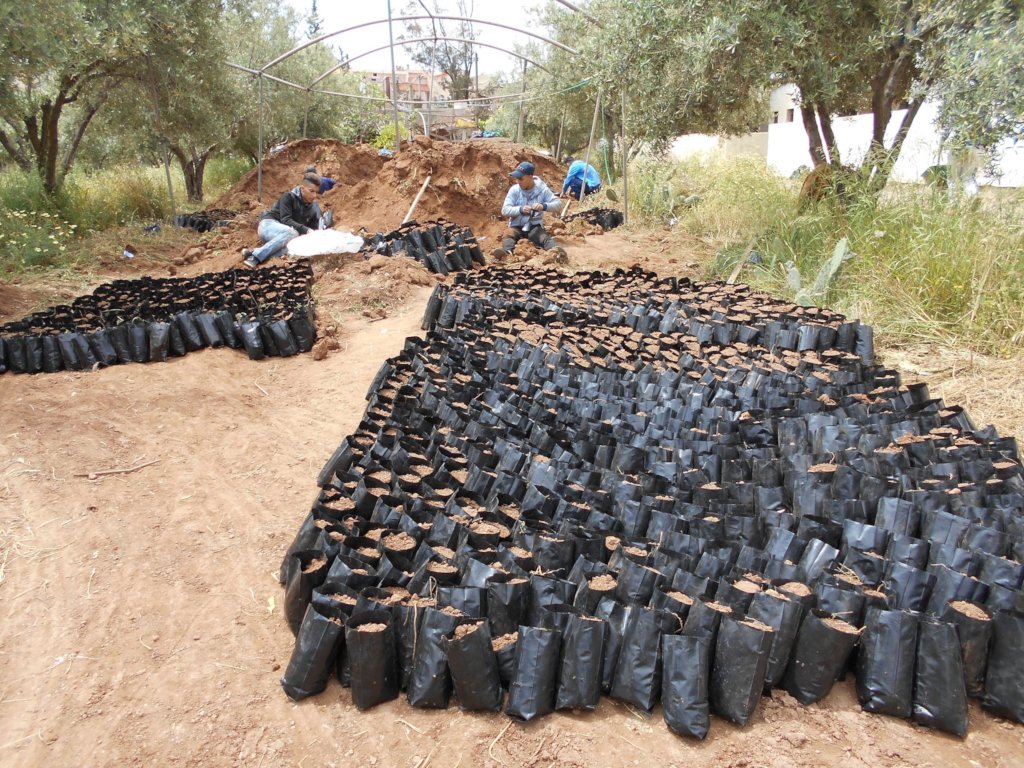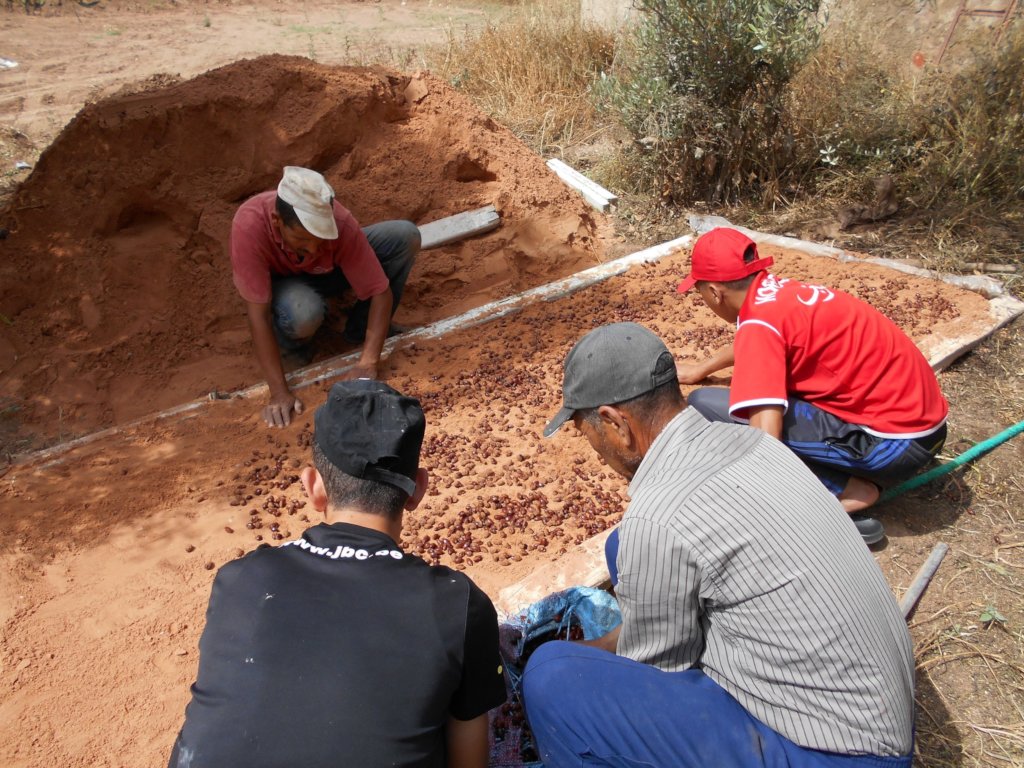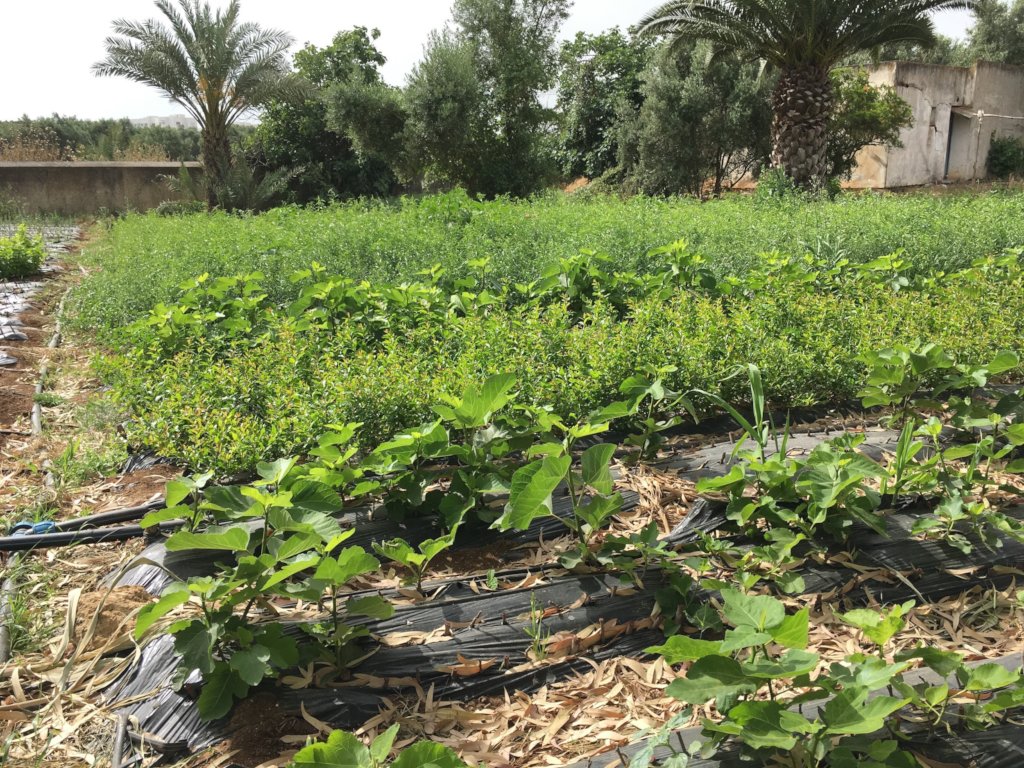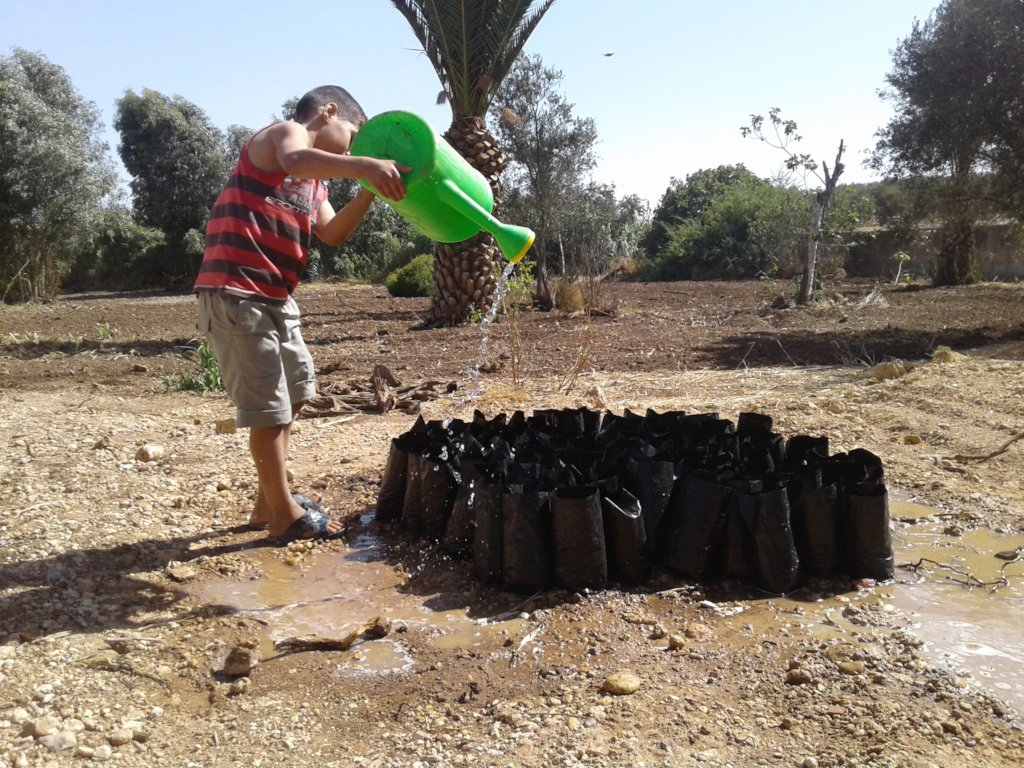By Theodore Maghrak | Volunteer, High Atlas Foundation
The High Atlas Foundation (HAF) was founded in 2000 with one overarching goal: to empower disadvantaged Moroccan communities, endorsing grassroots development and catalyzing sustainable economic growth. Requested by most communities, planting fruit trees for rural families is one of HAF’s many major projects. HAF raises trees in nurseries around the country, and once they are ready for planting, they participate with the recipients to ensure they’re properly relocated. Once a family receives trees, they are the sole beneficiaries of the fruits (and profits) grown with these trees.
In an innovative partnership, HAF has been working with a youth protection center for at-risk youth in Fes for about a year. Boys between the ages of 12 and 18 are residents at the center for roughly six months at a time, either serving in lieu of jail time, or having come as orphans. HAF became involved roughly a year ago, bringing a tree nursery to the center’s grounds. This year, through the partnership, they have planted about 300,000 seeds, working alongside the children to empower them with new skills. While learning about community empowerment, sustainability, agriculture, and more, the partnership helps provide much-needed structure that may ultimately reduce recidivism rates after the children return to their communities at-large.
The center, run by the Ministry of Youth and Sport, is one of twenty such centers nationwide. With youth representing an estimated 2.7 percent of the prison population in Morocco, these centers provide a valuable alternative to incarceration. These centers’ goal is to provide much-needed structure for youth offenders in a rehabilitative environment, while offering educational and vocational training. Several centers have programs in which the youth can receive a certificate or diploma following their training. Setting the series of centers apart from jails, they work to maintain and strengthen links between the youth, their families, and their community.
This shift is part of a larger global trend to reduce youth incarceration, opting instead to place youth in what one researcher calls “a robust continuum of community-based programs that endeavor to provide the exact elements research is telling us youth need to thrive and desist from delinquency.” This “continuum” of community-based alternatives to incarceration should provide, according to Penal Reform International, the following: education and vocational training; programs, recreation and religion; maintenance of family ties; maintenance of community ties; and ultimately plan for a transition out of a facility.After implementing alternatives like these locally, many states and municipalities in the United States have seen dramatic reductions in youth arrest, incarceration, and recidivism rates.
The partnership between HAF and the youth protection center confers benefits to both the Moroccan community at-large and the youth in residence at the center. It empowers families to have an additional source of income and nutrition, while simultaneously taking part in a larger global practice in reducing recidivism rates and combating extremism before it can develop among at-risk youth in the center. This is of critical importance in Morocco, where 28 percent of the population between 15 and 24 are unemployed, and not in school or any sort of professional training. This un- and underemployment puts Moroccan youth at risk in many ways, principally in that it can build a culture of resentment.
HAF is currently developing another partnership and an argan and carob tree nursery with a youth protection center in Oujda, with is including the youth from the first stages. With the knowledge that they’re working towards a larger goal, helping a great number of rural Moroccan families, the youth involved benefit from a sense of empowerment and the satisfaction of helping others, fostered in this innovative partnership.
Traditional in-kind land donations have tremendous impacts on the community at-large, and these contributions with the youth protection centers have ripple effects on a larger level. This partnership could blossom at a national level, if partnered with all 20 youth protection centers run by the Ministry of Youth and Sport. At the center in Fes alone, the 300,000 planted seeds will grow into trees tended by staff, youth in residence, and volunteers. Once these trees are distributed among rural families, on average comprising nine family members each, the impact on the community comes into clear focus. This is only a small portion of HAF’s overall efforts, but the possibilities of a larger partnership with all the centers would multiply those efforts in ways that bring benefits to not only the families receiving trees, but also empowering at-risk youth with structure, education, and positive role models and leadership.
Links:
Project reports on GlobalGiving are posted directly to globalgiving.org by Project Leaders as they are completed, generally every 3-4 months. To protect the integrity of these documents, GlobalGiving does not alter them; therefore you may find some language or formatting issues.
If you donate to this project or have donated to this project, you can receive an email when this project posts a report. You can also subscribe for reports without donating.
Support this important cause by creating a personalized fundraising page.
Start a Fundraiser


